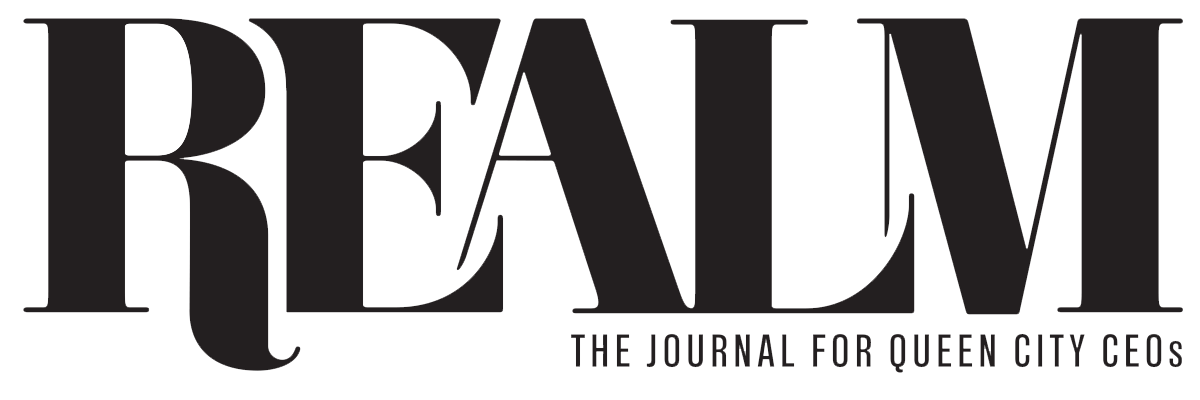According to the Women’s Business Enterprise National Council, women own 13 million businesses across the country. The National Association of Women Business Owners states that one in five firms with revenue of $1 million or more is woman-owned and that woman-owned firms account for 39 percent of all privately held U.S. firms.
It’s no secret that there are significant barriers to entry, and eventually success, for anyone starting his or her own business, but the stakes are often higher for women. Sexism, ageism, and racism can be magnified for women at all levels of the economic hierarchy. Indeed, the gender pay gap between women and men in the U.S. has held steady for the last two decades—in 2022, according to the Pew Research Center, women earned roughly 82 percent of what men earned. For many women, one solution is attaining a leadership position that allows them to effect change.
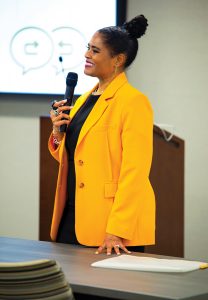
“What I continue to see is that there’s just an increase of women and particularly women of color deciding, I want to create my own work culture, I want to start my own business,” says Patrice Borders, a Cincinnati-based board-certified executive coach. “I think a driving force is wanting to really shape a culture of belonging, starting for themselves. That, in many ways, is an absolute testament to confidence versus the messaging sometimes we get about imposter syndrome.”
To receive woman-owned business certification from the Women’s Business Enterprise National Council, a business must have at least 51 percent female ownership. Some 950 firms in the Cincinnati region, according to data from the 2018 U.S. Census Bureau’s Annual Business Survey. “I think as a region we do a great job of acknowledging that we want talent to stay here and we want talent to be invested in our region,” says Borders. “It’s not always a positioning of We need to fix this but creating the opportunity for expansion and growth, because organizations acknowledge these are the future solutions to our biggest future problems. We want to make sure they’re at the table and their voices are heard.”
Cincinnati itself has been a huge factor in the success of many of these businesses, including Pure Romance, the region’s largest woman-owned business. The wellness and intimacy company, founded in 1993, moved its headquarters to downtown Cincinnati in 2014.
“Cincinnati is where Pure Romance began, and it’s important to me to keep our business in the city that’s supported us for the last 30 years,” says CEO Patty Brisben. “I may be biased, but Cincinnati is an incredible city. It’s important to us to create jobs for the community and give back to the place that’s given so much to us.”

Michele O’Rourke, CEO of O’Rourke Wrecking, a specialty demolition company, shares Brisben’s goal. “As a woman, I love that nurturing part, trying to identify and give support to people that might not have it and mentor them,” says O’Rourke, who took over as CEO in 2019. “I mentor a lot of young women and try to break glass ceilings and pave the way so in 20 years there are tons of people like me, because I still struggle. I didn’t have a mentor myself. In my early career, there weren’t women mentors in the construction field at all.”
Previously a pharmaceutical sales rep, O’Rourke joined the family company in 1992. Her father-in-law, the firm’s founder, had passed away, and her husband Mike was tasked with taking over the reins. Michele quit her job to support Mike and took a closer look at company operations, coming aboard initially to help in accounting and provide some stabilization.
“My role at O’Rourke kind of evolved,” she says. “What started as temporary by default has morphed into a career into a C-suite position. I never dreamed when I started I would be here in this role, and I love it.”
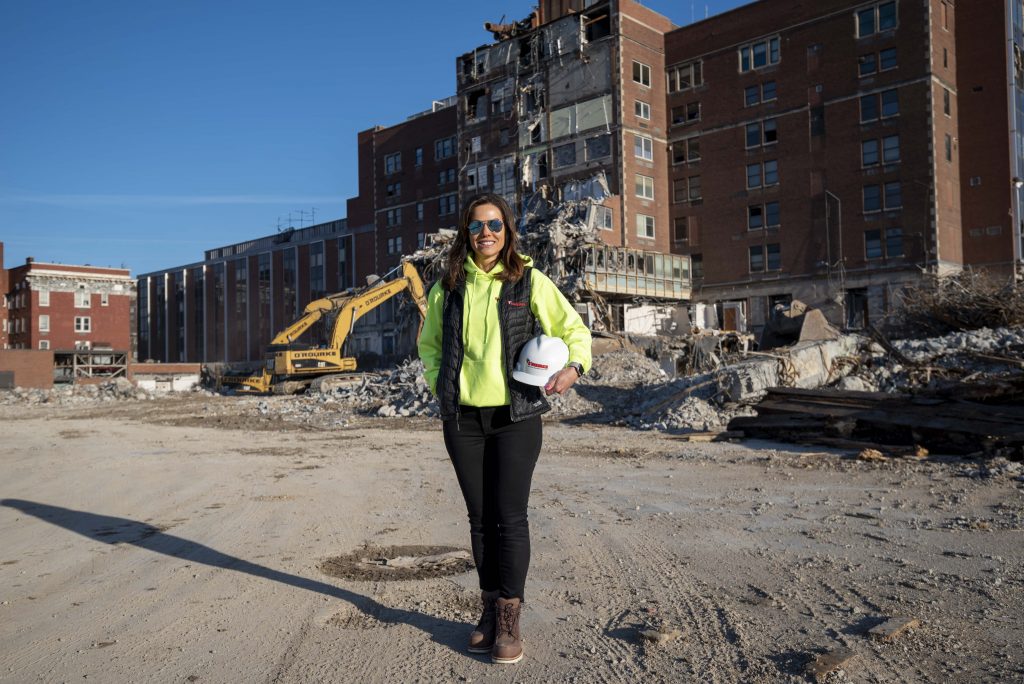
Christy Bard, the newly minted CEO of Jancoa, one of the region’s largest commercial cleaning companies, also took on a leadership role at a family company, when she took over from Mary Miller, her mother. “I have the best role model I could ever dream of having,” says Bard. “Her positive spirit and belief that tomorrow can be better and her efforts to find ways to make it better are simply what she did, and we all watched that for so many years that it’s just become what we do now. Her spirit it part of the natural DNA of Jancoa.”
The company was founded by Tony Miller, Bard’s stepfather, in 1972, and his wife, Mary, came on board in 1993. Bard joined Jancoa 10 years ago, starting in business development. Husband Clint is the company’s COO, and Tony Miller’s brother, Ron, is executive vice president. The three now comprise the operational leadership team.
“When this transition happened at the end of last year, we were definitely very heavy into the leadership roles already within the day-to-day business,” says Bard. “So it just felt very comfortable to our customers and to our employees, because nothing really changed for them. The transition went beautifully.”
Jancoa employs a team of 550 people, from administrative to cleaning staff, and Bard is proud of the opportunity it provides for full-time employment at all levels, offering not just a job but a career. “We love our people and do all we can to support them and provide opportunities,” she says. “We take great pride in the diversity we represent within our Jancoa family. Not only women leaders, but also Latino leaders, Nepali leaders, African-American leaders. That makes our heart smile.”
The company’s diversity comes from Bard’s top-down approach and builds on the legacy her mother started at Jancoa. “There’s never been a time when I thought my voice wasn’t being heard or when we didn’t get work because we’re a woman-owned business,” she says. “Actually, it would be quite the opposite. I feel that being a woman-owned business opens up more opportunities for us, and we’re very proud to be able to serve customers looking for that kind of vendor.”

In 2015, Bard went through WE Lead, the Cincinnati USA Regional Chamber leadership development program for women. “I built great relationships through that experience, and some of the gals are still my very close friends,” she says. “It’s been a critical part of my leadership development to be able to have conversations about business with other female business leaders and just watch everybody grow from where they were to where they are now and still have those relationships and that support system.”
She’s keen to provide that same opportunity to the women on her Jancoa team, too. “We have some incredible women,” says Bard. “I want to do all I can to encourage them and support them and see what kind of future they can have here at the company.”
O’Rourke is equally invested in the next generation of leaders in her sector, at both the macro and micro levels. The company itself regularly works with area organizations to expose young people to potential careers in the construction field, including Building Value’s work program and the Construction Career Advocacy Program. The company also has a robust co-op program.
“Hiring women co-ops and diverse minority co-ops is unbelievable,” says O’Rourke. “There have been preconceived notions about women and minorities in this field, but that mindset is changing. That’s what I’ve been working hard to do. Ten years from now, when I drive by one of our sites, you’re going to see lots of different faces from what you see now.”
O’Rourke says she remains one of the few women present on industry boards and committees. She was just the second woman in the Spirit of Construction Foundation’s 26-year history to chair its annual gala, and she now serves as board president. O’Rourke is also deeply involved with Ladies Operating for Growth in Construction (LOGIC).
“The goal of LOGIC is to help women who’ve been in the industry get into leadership and C-Suite roles,” she says. “We’re trying to get them out of their comfort zones and push them to be assertive and speak up. You didn’t earn a seat at the table just because you’re a woman—you earned a seat at the table because you’re smart. We just need to empower them.”
at the other end of the woman-owned business spectrum are individual entrepreneurs, or solopreneurs, such as Regina Carswell Russo of RRight Now Communications. A former broadcast journalist, she decided to take the plunge to forge the second career she always wanted.
“I never thought I would be an entrepreneur, because I was a journalist for 23 years,” says Russo. “I decided to change careers when my kids were born. You’ll find that a lot of women entrepreneurs get their start because they’re pivoting in their career to balance their life.”
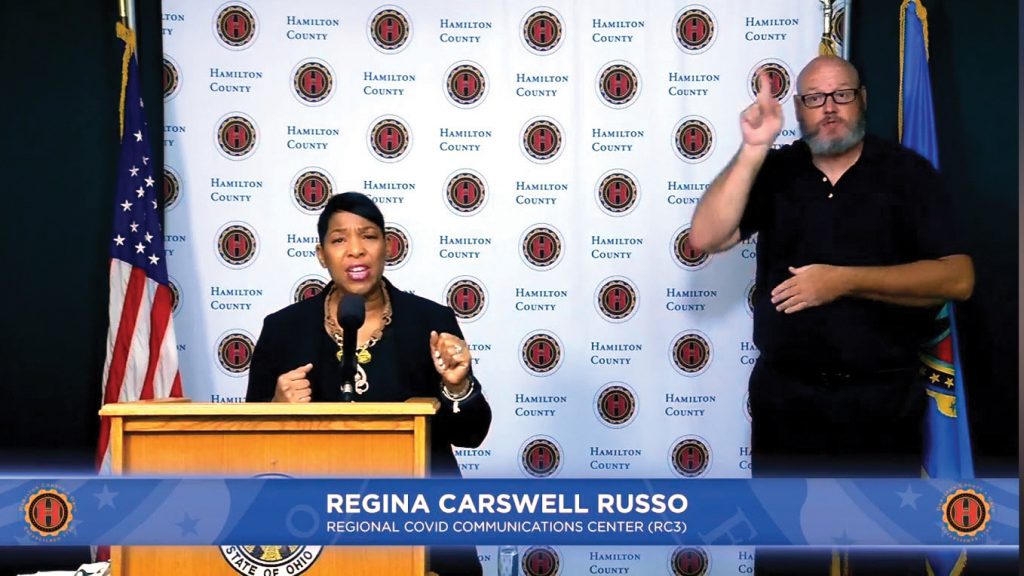
After stops in marketing for the Contemporary Arts Center and the Cincinnati Art Museum, Russo’s career path became clear through WE Lead, the same program Bard undertook. “It wasn’t until I was in Cohort 8 of WE Lead that it occurred to me I could do the work of storytelling on my own and support lots of different organizations, teach them how to tell and amplify their story,” she says.
What started as a self-described “garden-variety PR” approach transitioned into what’s become the bread and butter of RRight Now: bridging the gap companies and individuals have with connecting to the public.Russo specializes in strategic communications, from crisis communications to effective public speaking training to media relations management to working with internal teams at various organizations and companies to better tell their stories.
“My business really took off when the Chamber and the Health Collaborative hired me to run the COVID communications center here in the region,” says Russo. “All of the messaging and the cohesive, data-driven,health-educated information had to reach every corner of this region, and I was tasked with pulling that information together and then disseminating it. I did that work alone at my dining room table throughout the pandemic. Most people didn’t know that this Black woman-solopreneur ran that process.”
Russo’s communications business grew to such an extent that she needed more space to house her office and more collaborators to fill her clients’ needs. So she acquired space on the second floor of 817 Main Street downtown, but not before self-doubt crept in.
“That tells you about some of the things women entrepreneurs and women business owners face,” she says. “I was second-guessing myself on whether I should buy this floor. I was immediately thinking, I should just maybe lease a 800-square-foot space and start out small.”
Russo’s friend Nat Comisar, a Realtor and former restaurateur, had some words of wisdom for her. “He gave me the best advice: You need to grow into where you want your business to flourish, and that requires you to step out further than you think you should be,” says Russo. “I was very thankful for those words, because women don’t hear that very often and don’t own it.”
As an executive leadership coach, Borders encounters trepidation from women at all levels of business and entrepreneurship. She has taken cues from leadership experts like Tara Mohr and Peggy Klaus, who coined the concept of the “bragalog,” and teaches clients to embrace the fullness of their strengths and potential.
“One tool I use across my coaching with women is finding that voice of self-advocacy and self-promotion,” says Borders. “Generally, to a fault, we embody this concept of Oh, I don’t want to self-promote, my work should stand for itself and Oh, there’s a negative connotation for self promotion. We circle back in and discuss how they can change the playbook so they acknowledge that sometimes their work has gone unnoticed because they didn’t elevate it. When you’re talking about the facts, it’s not bragging.”
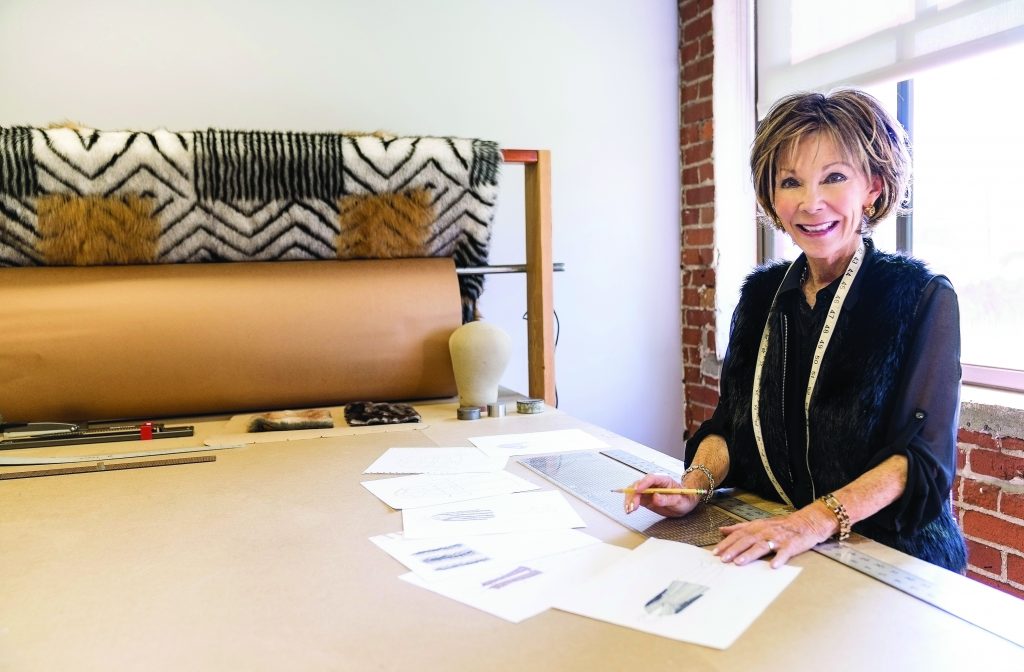
A component of self-promotion is effective branding, like that of Donna’s Fabulous Furs. Founded in 1989 by Donna Salyers, her eponymous company has a straightforward backstory: She started selling DIY faux-fur coat kits after one she made for herself earned rave reviews on a trip to New York City. Her work ethos is part of the brand, which exclusively uses faux fur, and her success has been hard-won.
“It was pretty tough to start out, and I don’t know that you have to be a woman to corner that ‘hard times’ market,” says Salyers. “I think it’s difficult to run any business, especially a startup, and to think it’s going to go somewhere. Failure rates are just horrible. How many small businesses fail before the fifth year? And then for us to be a world leader from Covington, Kentucky, are you crazy?”
More than 30 years later, Donna’s Fabulous Furs, Donna’s Fabulous Bridal, the Madison Event Center, and Hotel Covington have all grown under the umbrella of the Salyers Group, an investment firm headed up by her husband, Jim. The hotel is led by the pair’s son-in-law, Guy van Rooyen, who serves as Salyers Group president. It’s been named to national “best of ” hotel rankings, including the No. 1 ranked Kentucky hotel and inclusion in the top 3 percent of all U.S. hotels for 2022 in U.S. News & World Report. North by Hotel Covington recently opened in a vacant YMCA building just to the north on Madison Avenue.
The Salyers were urban pioneers of sorts along that strip of downtown Covington, which has seen a dramatic rise in redevelopment over the last 15 years. An explosion of restaurants and commerce has cropped up in proximity to Salyers Group entities, growth that continues to be good for the city and the region in general.
“The rising tide lifts all boats,” says Salyers. “I think we women company owners are a sorority of people who all have business problems but can help one another. The camaraderie and willingness to do anything to help each other is really strong in Northern Kentucky and Cincinnati.”
Indeed, for Jancoa, the region’s business network is so strong that the company has eschewed franchising in other markets. “Our foundation is in the Cincinnati area,” says Bard. “My stepdad built the business in Cincinnati, and we have a firm solid foundation within this region. We’ve had a lot of customers try to encourage us to consider other cities, but at this time we’re proud to do what we do very well right here.”
As evidenced by the success of woman-owned businesses, says Borders, local investment in women leaders can only continue to pay off for the region. “We have an openness here to the impact of what it means to invest in leaders,” she says. “We really value the capacity of someone to grow her self-awareness, to lead with more insight, to communicate better, to understand that there are different leadership styles and approaches, to collaborate, and to ensure that other voices and perspectives are invited in.”
